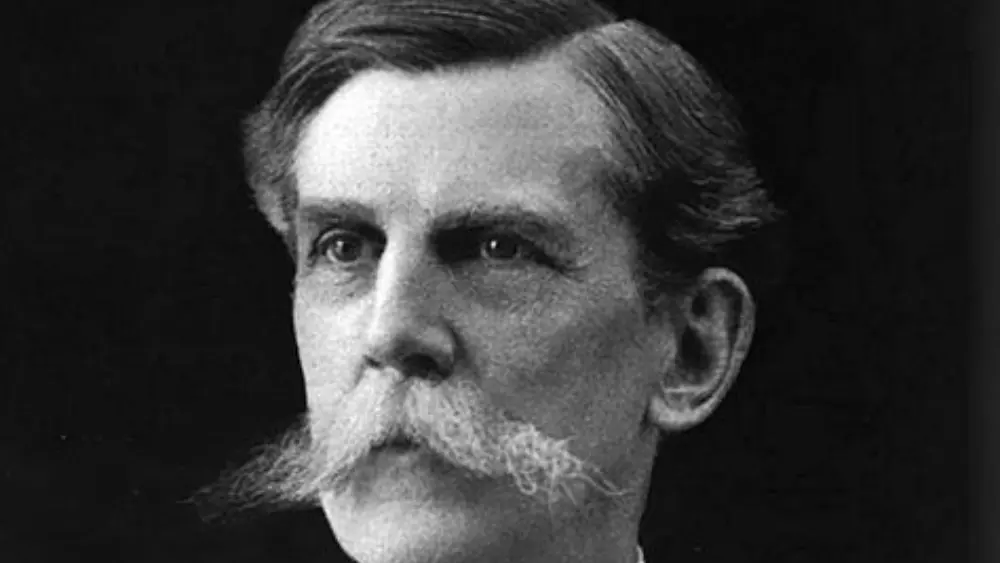Oliver Wendell Holmes, Jr., born on March 8, 1841, in Boston, Massachusetts, was a distinguished American jurist who left a lasting impact on the United States Supreme Court. Renowned for his unwavering commitment to defending the First Amendment’s protection of free speech, Holmes’s judicial career was marked by groundbreaking decisions that shaped the interpretation of the Constitution.
Early Life and Education
Oliver Wendell Holmes, a U.S. legal icon, emerged from a distinguished New England family steeped in intellectual legacy. Born March 8, 1841, in Boston, Holmes thrived in an intellectually rich environment. His father, Oliver Wendell Holmes Sr., was an influential physician, poet, and essayist. His mother, Amelia Lee Jackson, had a distinguished lineage. This familial backdrop played a pivotal role in shaping young Holmes’s intellectual curiosity and passion for the law.
Holmes’s academic journey commenced at the venerable Harvard College, where he embarked on his undergraduate studies in 1857. At Harvard, he eagerly studied various subjects, shaping his future legal philosophy with his insatiable appetite for learning. After obtaining his bachelor’s degree in 1861, Holmes continued his educational voyage at Harvard Law School. He refined his legal skills and appreciated the American legal system’s complexity under eminent legal scholars’ guidance. Harvard Law School shaped Holmes’s legal career, ultimately taking him to the highest levels of the American judiciary.
Holmes’s upbringing in a New England family shaped his brilliant legal career and intellectual groundwork. Harvard to Harvard Law, crafting a sharp legal mind, setting the stage for transformative contributions to American jurisprudence. Holmes drew on early values, shaping U.S. law profoundly.
Oliver Wendell Holmes: Civil War Service
In the Civil War, Holmes was a first lieutenant, actively involved in its unruly conflicts. He played key roles in pivotal battles, including Antietam and Fredericksburg, during his significant service in American history. These experiences etched permanent marks on Holmes’ life, shaping not only his personal outlook but also his legal philosophy.
As he witnessed the horrors and chaos of war, Holmes’ worldview underwent a profound transformation. Combat’s brutality, lost comrades, and battlefield strife left an enduring imprint on his psyche. Harrowing encounters shaped pragmatism and deep understanding, influencing later judicial decisions. Holmes’ Civil War experience shaped his legal perspective, influencing his contributions to jurisprudence and cementing his prominence in American history. His Civil War service molded his intellect and morals, leaving a lasting legacy in legal scholarship and jurisprudence history.
Legal Career
After the Civil War, Holmes embarked on a legal journey, culminating in his prestigious appointment to the U.S. Supreme Court. Holmes, a prominent figure in American legal history, navigated the intricacies of the legal profession with exceptional finesse and dedication. His diverse legal career showcased intellect, acumen, and unwavering commitment to the field, spanning a broad spectrum of activities.
One facet of Holmes’s legal career was his active practice of law. He distinguished himself as a formidable lawyer, handling a wide array of cases with skill and precision. His courtroom prowess earned him recognition and respect among his peers and clients alike. Simultaneously, Holmes contributed significantly to the legal education landscape by teaching at Harvard Law School. As an educator, he shaped future legal scholars and practitioners, leaving an enduring impact on the next generation of lawyers. Holmes authored influential legal writings, solidifying his legacy as a profound legal thinker and philosopher in jurisprudence. His journey from young lawyer to Supreme Court justice showcased unwavering dedication, leaving an enduring impact on American law.
Oliver Wendell Holmes: Supreme Court Appointment
In the annals of American legal history, the year 1902 marked a pivotal moment when President Theodore Roosevelt made a significant decision that would shape the nation’s jurisprudential landscape. It was during this year that Roosevelt appointed Oliver Wendell Holmes to the United States Supreme Court, a move that would have far-reaching consequences for the interpretation and preservation of constitutional principles. Holmes’s tenure on the Court, which extended over nearly three decades, stands as a testament to his unwavering dedication to the principles enshrined in the United States Constitution, with a particular emphasis on safeguarding the bedrock of free speech.
Throughout his tenure on the Supreme Court, Justice Holmes emerged as a stalwart champion of constitutional principles, particularly in the realm of free speech. His jurisprudence was characterized by a commitment to ensuring that the First Amendment’s protections were upheld, even in the face of contentious and challenging cases. Holmes’s eloquent and influential opinions shaped the Court’s understanding of the boundaries and limitations of free expression, leaving an enduring legacy that continues to inform legal discourse on matters of free speech and constitutional interpretation. His appointment to the Supreme Court was a pivotal moment in the nation’s legal history, as it ushered in an era of jurisprudential wisdom and dedication to constitutional ideals that continue to resonate in the present day.
Landmark Free Speech Cases
Oliver Wendell Holmes left a significant imprint on American jurisprudence through his groundbreaking contributions to the realm of free speech. Among his most prominent legacies were the landmark cases of Schenck v. United States (1919) and Abrams v. United States (1919). In these pivotal cases, Justice Holmes crafted what would become known as the “clear and present danger” test, a legal standard that played a seminal role in defining the boundaries of free expression and the government’s authority to restrict it when necessary to safeguard the nation’s interests.
The “clear and present danger” test formulated by Holmes established a precedent for evaluating when the government could curtail speech to prevent harm to the nation. This criterion recognized that while the First Amendment protected free speech, it was not an absolute right and could be subject to limitations in specific circumstances. Holmes’s astute jurisprudence helped strike a delicate balance between individual liberties and the government’s responsibility to maintain national security, providing a framework that courts would rely upon for generations to come. His influential role in shaping these cases underscores his enduring significance in the development of constitutional law and the protection of free speech as a fundamental cornerstone of American democracy.
Oliver Wendell Holmes: Dissenting Opinions
Oliver Wendell Holmes’s unwavering commitment to the principles of free speech was notably demonstrated through his eloquent and impactful dissenting opinions. Within his distinguished career on the Supreme Court, his dissents in landmark cases like Gitlow v. New York (1925) and Whitney v. California (1927) stand as enduring testaments to his dedication to the safeguarding of First Amendment rights. Holmes’s dissents, while initially in the minority, often planted the seeds for future developments in the interpretation and expansion of free speech protections in the United States.
In Gitlow v. New York (1925), Holmes dissented, arguing for First Amendment protection of revolutionary advocacy without imminent incitement. This dissent laid the foundation for incorporating the Bill of Rights into states and expanding free speech rights. Likewise, in Whitney v. California (1927), Holmes stressed a vibrant marketplace of ideas and safeguarding non-immediate threats to the state. These dissents influenced later legal developments, enhancing First Amendment protections in the U.S..

Legacy
Oliver Wendell Holmes’s legacy defends free speech, profoundly shaping American law and society. Holmes greatly shaped First Amendment understanding during his Supreme Court career, bolstering democratic principles. His jurisprudence emphasized free speech as vital for a vibrant democracy, resonating in cases of controversial or unpopular expression.
Holmes’s jurisprudential contributions went beyond mere legal doctrine; they extended into the realm of societal values and principles. He promoted democracy through free speech that challenged norms, fostering open debate, diverse perspectives, and the exchange of ideas. His enduring legacy as a defender of free speech shapes contemporary discussions on its role in American democracy.











